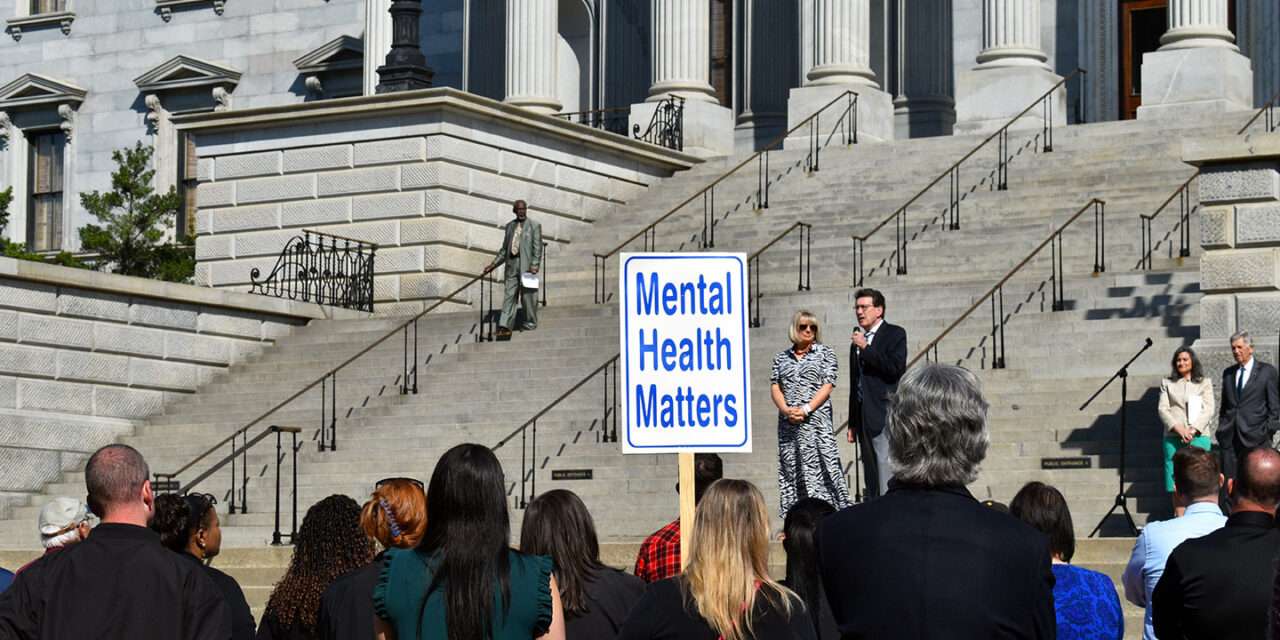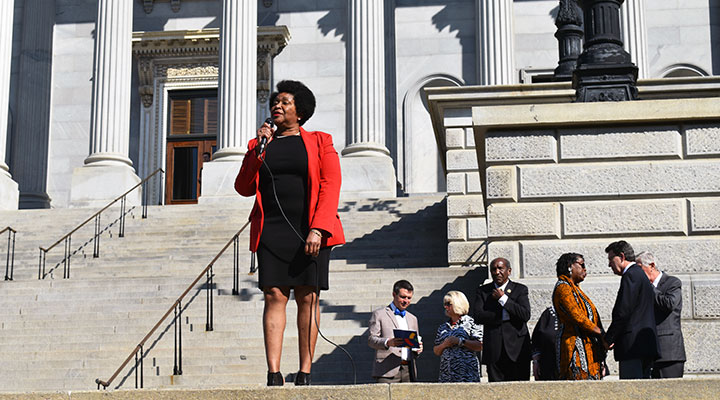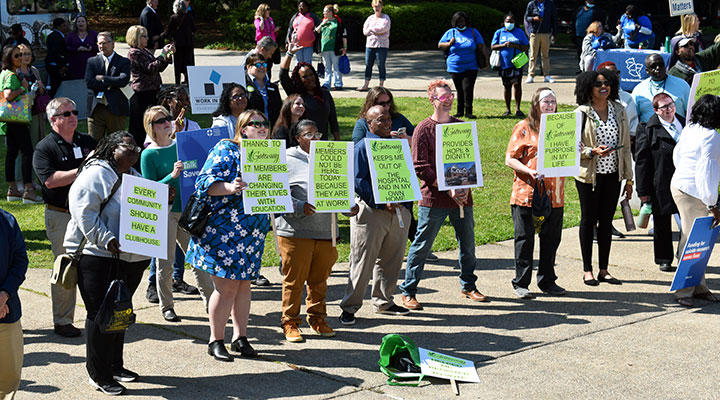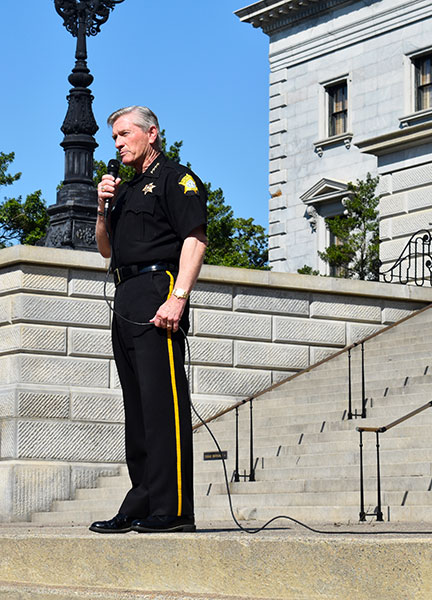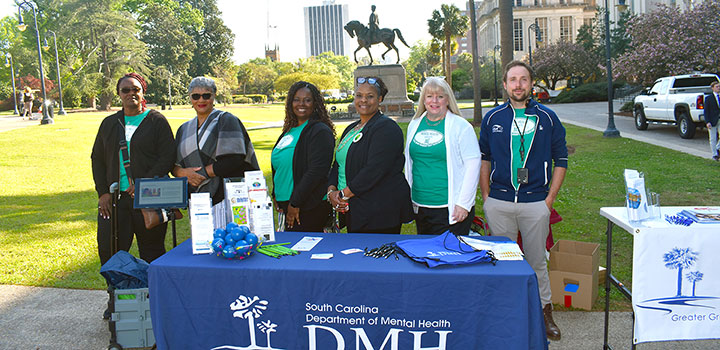Mental Health Advocacy Day was March 30 at the S.C. Statehouse. (Photos by Grace Brown)
A sunny sky gave way to stories of hope, advocacy and healing on the steps of the South Carolina State House this week.
Around 100 people rallied in support of Mental Health Advocacy Day.
Representatives from organizations such as the American Foundation for Suicide Prevention, Mental Health America and the National Alliance on Mental Illness tried to raise awareness for the cause.
People also heard from state senators and representatives as well as the Richland County Sheriff’s Department.
“The suicide rate went back up in 2021, and that was rough,” John Tjaarda, the S.C. director of the American Foundation for Suicide Prevention announced. “But then we got really good news … because even though the national rate went up in 2021 in South Carolina, … the suicide rate went down.”
He credited a lot of that to the efforts of the organizations that were present.
“That just shows that what we’re doing works,” Charter said.
Even though the state has more resources for mental health and crisis situations than ever before, there has to be a push for more, Jennifer Butler, program director of the S.C. Department of Mental Health’s Office of Emergency Services, told the crowd.
A free call center, 988 Lifeline SC, supports people in an emergency or who just want to talk. The mental health department is adding a second call center, based out of Charleston, this spring, Butler said.
“The youngest caller to 988 last year was 7 years old,” Butler said. “The oldest caller was 99. What does that say? We all need it, right? None of us are immune to needing support on any given day, right?”
Butler said the department also will be adding 34 full- and part-time peer support specialists to their mobile crisis teams across the state.
The teams see people of all ages and deploys members with the appropriate training to help people in crisis, according to the department’s website.
Richland County Sheriff Leon Lott shared his own story about his father, who dealt with mental illness.
“I’ve got to see it first hand, and that’s one of the reasons why I’ve dedicated myself to make sure that we do not treat those with mental illness as a criminal,” Lott said.
He said the sheriff’s department has created a crisis intervention team and deputies are proud of that.
The intervention teams are deputies who are not in uniform or in police cars but respond to mental health calls. They work to de-escalate a scene and keep those struggling with their mental health out of a detention center.
Staff Sgt. Shannon Timmerman, the S.C. National Guard’s suicide prevention program manager, said there’s still a stigma for those seeking help.
“Everybody’s going to be more comfortable coming forward to ask for whatever help that is,” Timmerman said. “It doesn’t matter if you’re the sheriff of Richland or if you’re an army soldier or whatever the case may be. It’s just fighting that stigma.”
State representatives and senators stopped by on their way into the Statehouse to address the crowd.
They wanted to voice support for mental health care.
“… Know that it’s in our hearts and our minds every day (about) making strides in mental health across the great state of South Carolina,” said Senate President Thomas Alexander, R-Oconee.
Rep. Annie McDaniel, D-Fairfield, urged everyone there to call their senators and representatives and let them know how important the issue is.
“This is how you all get our attention,” McDaniel said. “You come out here to the Statehouse, get us out here (and) you get us talking.”
State Rep. Annie McDaniel, D-Fairfield, encourages the crowd to stay diligent about mental health advocacy.
Supporters of Gateway Rehabilitation Program stand front and center so senators and representatives can see their signs.
Richland County Sheriff Leon Lott shares his personal history with the crowd.
The S.C. Department of Mental Health employees man tables to provide information.

